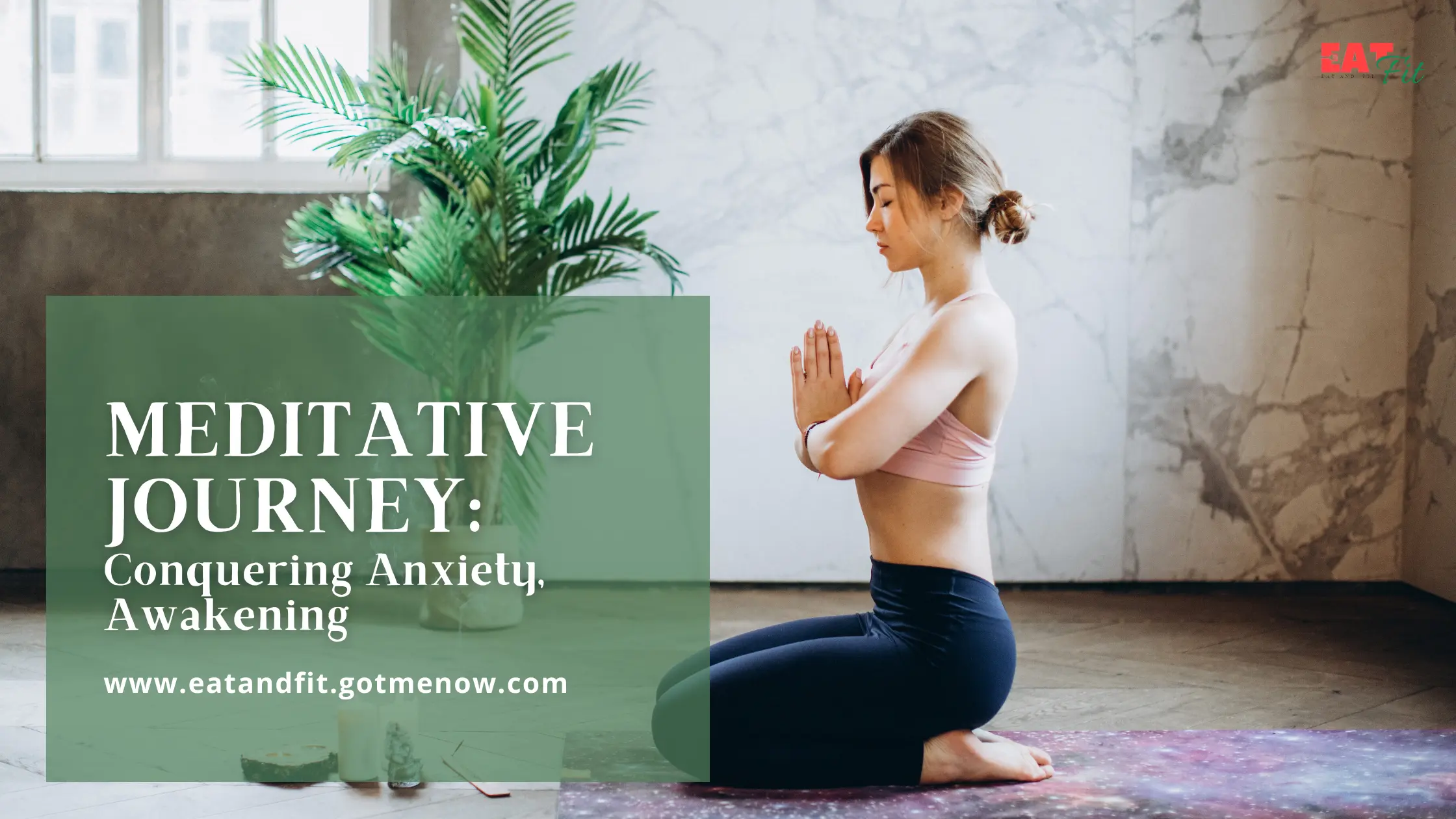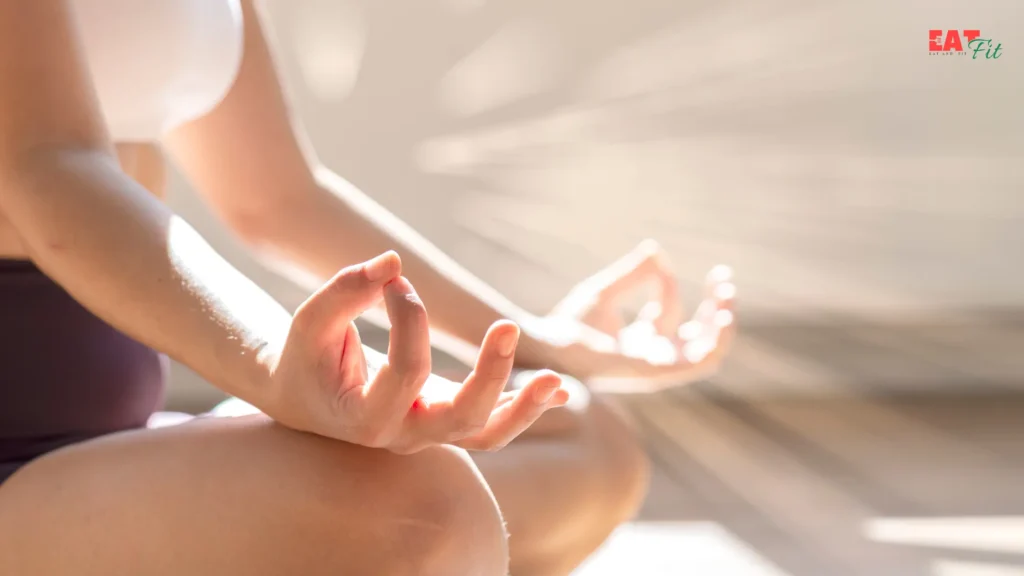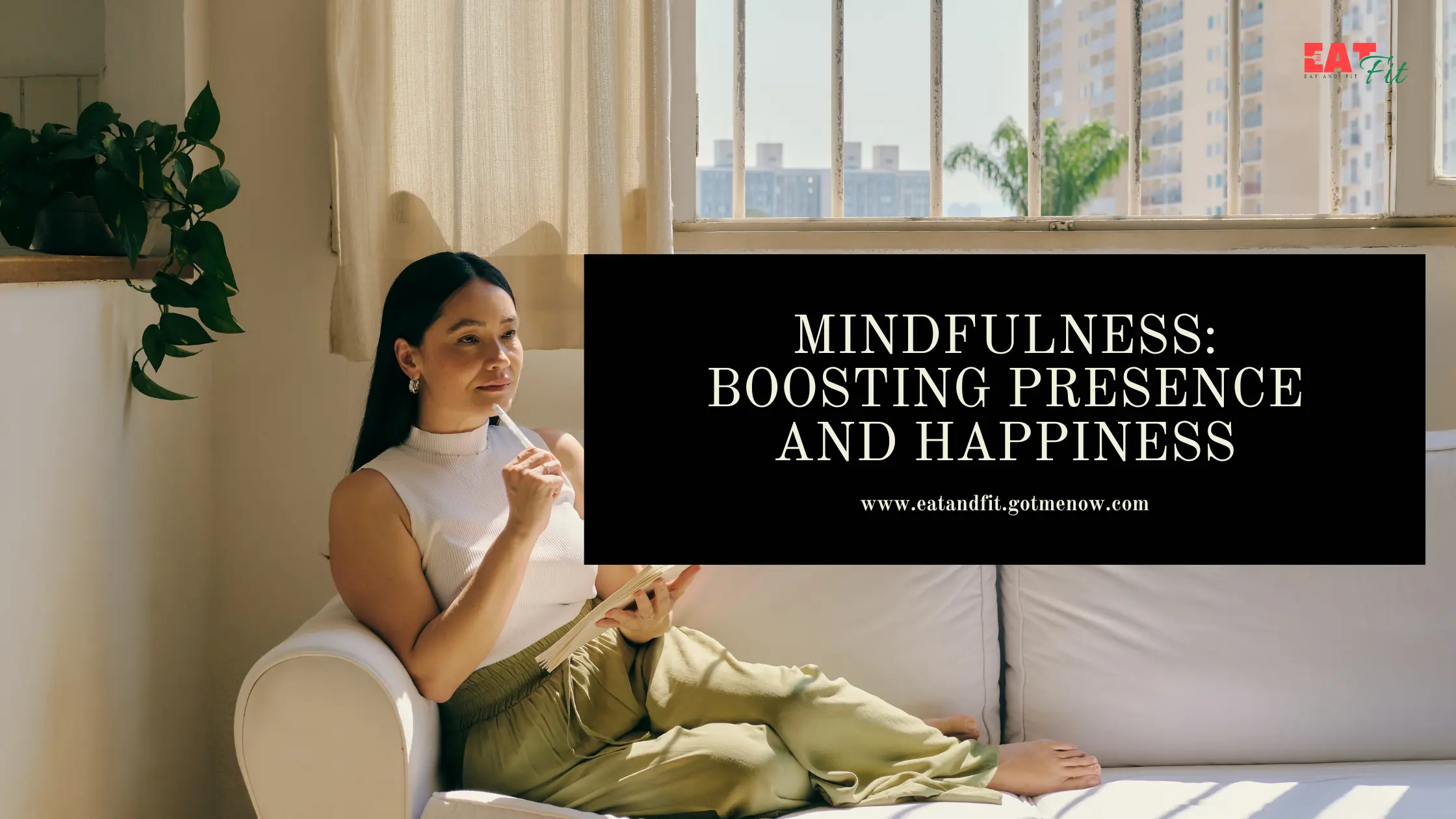- Meditation
- Mental health
- Mental Health Awareness and Coping Strategies
- Understanding and Managing Stress
My Journey with Meditation: Overcoming Anxiety and Awakening

Table of Contents
- Introduction
- Foundational Phase: Unveiling Self-Limiting Beliefs
- Leveling Up: The Power of Vipassana Meditation
- Integration and Daily Life Benefits
- The Dark Side of Meditation
- Meditation as a Vehicle for Truth
- Current State and Ongoing Commitment
- Conclusion
- FAQ
Introduction
My journey with meditation began as a result of my personal experience with anxiety. Despite having a seemingly perfect life on the surface – a good job, a great physique, and a beautiful girlfriend – I was dealing with tremendous amounts of anxiety that I couldn’t shake off. In my search for relief, I stumbled upon the works of Tim Ferriss and Sam Harris, who both emphasized the benefits of mindfulness and meditation.
At first, I was skeptical and felt awkward about the idea of meditation. It seemed strange to sit still and do nothing. However, out of desperation, I decided to give it a try. To my surprise, I immediately felt a sense of relief and calmness during my first few minutes of meditation. It was like a breath of fresh air amidst the chaos in my mind.
This initial experience served as a hook for me, motivating me to explore meditation further. I started with short five-minute sessions, gradually increasing the duration to twenty and even thirty minutes. As I delved deeper into meditation, I realized that it offered a unique opportunity for internal investigation, allowing me to uncover and address the root causes of my anxiety.
Addressing the Root Causes of Depression and Anxiety: A Different Approach to Mental Health
With each meditation session, I became more motivated to continue my practice. The more I meditated, the more I experienced relief from anxiety and a greater sense of presence in my daily life. Meditation became a project that extended beyond managing my anxiety, as I began to notice the little things and develop a deeper understanding of myself.
While meditation has brought immense benefits to my life, it is important to acknowledge that it is not a magical solution to all problems. Meditation requires serious dedication and can bring up difficult emotions and memories that need to be processed. It is a journey that requires caution and self-care.
Despite the challenges, my commitment to meditation and awakening remains unwavering. It has become the number one priority in my life, permeating every moment of my experience. Through meditation, I have come to realize that the answers and peace I sought were within me all along.
Foundational Phase: Unveiling Self-Limiting Beliefs
During the early stages of my meditation journey, I began to uncover and address my self-limiting beliefs. I saw my mind as hardware, and meditation as the tool to uncover unconscious beliefs that were causing me to react and suffer.
By delving into meditation, I found relief from anxiety through internal investigation. Instead of numbing the discomfort, I confronted the root causes of my anxiety head-on. It was like doing an operation on my mind, removing the bolts that were causing me to suffer.
This process of uncovering self-limiting beliefs motivated me to deepen my meditation practice. I gradually increased the duration of my meditation sessions from five minutes to twenty and even thirty minutes. With each session, I gained more insight into my mind and experienced greater relief from anxiety.
As I continued my meditation practice, I became more and more aware of the transformative power of self-awareness. Meditation allowed me to develop a deeper understanding of myself and the patterns that were causing me to suffer. It became a project that extended beyond managing my anxiety.
However, it is important to note that meditation is not a magical solution to all problems. It requires dedication and can bring up difficult emotions and memories that need to be processed. It is a journey that requires caution and self-care.

Despite the challenges, my commitment to meditation and awakening remains unwavering. It has become the number one priority in my life, permeating every moment of my experience. Through meditation, I have come to realize that the answers and peace I sought were within me all along.
Leveling Up: The Power of Vipassana Meditation
After delving into meditation and experiencing relief from anxiety, I was eager to take my practice to the next level. This led me to attend my first 10-day Vipassana meditation retreat, which proved to be a transformative experience.
The retreat had an intense schedule, with participants required to maintain complete silence and meditate for 10 and a half hours each day. It was a challenging but rewarding environment that allowed me to fully immerse myself in the practice.
During the retreat, I learned the technique of body scanning, which involved systematically observing and scanning sensations throughout my body. This practice allowed me to deconstruct my thoughts and develop a deeper understanding of the impermanent nature of sensations.
The prospect of letting go of suffering through this technique was immensely exciting. I realized that by observing and understanding my thoughts and sensations, I could begin to break free from the grip of anxiety and negative emotions.
One of the highlights of the retreat was the presence and charisma of the teacher, S.N. Goenka. His dedication to the practice and his ability to guide us through the technique was inspiring. His teachings instilled in me a deeper commitment to my meditation practice.
Leaving the retreat, I felt a renewed vigor for my meditation practice. I was determined to continue with the recommended two hours of daily meditation in order to delve even deeper into the root causes of my suffering.
As I continued my practice, I began to reap the benefits in my daily life. I developed the skill to detach from difficult states of mind and became more present in each moment. Meditation became more than just a tool for managing anxiety; it became a way of life.
However, it’s important to note that meditation is not a magical solution to all problems. It requires dedication and can bring up difficult emotions and memories that need to be processed. It’s a journey that requires caution and self-care.
Despite the challenges, my commitment to meditation and awakening remains unwavering. It has become the number one priority in my life, permeating every moment of my experience. Through meditation, I have come to realize that the answers and peace I sought were within me all along.
Integration and Daily Life Benefits
Through my journey with meditation, I have experienced numerous benefits that have greatly impacted my daily life. These benefits go beyond managing anxiety and delve into the realms of detachment, presence, and self-awareness.
Improvements in detachment and presence
As I continued my meditation practice, I noticed a significant improvement in my ability to detach from difficult states of mind. Previously, these states would consume me, leading to increased anxiety and stress. Through meditation, I developed the skill to observe these states without becoming entangled in them. This detachment allowed me to approach challenges with a greater sense of clarity and objectivity.

In addition to detachment, meditation also enhanced my presence in each moment. I began to appreciate the small moments in life that I had previously overlooked. The chirping of a bird, the rustle of leaves, or the sensation of my feet on the ground became moments of deep connection and gratitude. Meditation helped me cultivate a sense of mindfulness and awareness that permeated my daily life.
Appreciating the small moments in life
Meditation also taught me to appreciate the small moments in life. Instead of constantly chasing after future goals and accomplishments, I learned to find joy and contentment in the present moment. Whether it was savoring a cup of tea, spending time with loved ones, or simply enjoying my own company, meditation allowed me to develop a deeper level of appreciation for the beauty of everyday life.
Meditation as a continuous project
As my meditation practice evolved, I began to view it as a continuous project rather than a temporary solution for anxiety management. I realized that meditation was not just about finding relief from my struggles, but about delving deeper into the patterns and beliefs that were causing suffering. It became a lifelong journey of self-discovery and awakening.
Expanding goals beyond anxiety management
While meditation initially served as a tool for managing anxiety, it opened up new possibilities and expanded my goals beyond anxiety relief. I started to explore the depths of my mind, uncovering self-limiting beliefs and addressing the root causes of my suffering. Meditation became a catalyst for personal growth, enabling me to break free from limiting patterns and embrace a more expansive and fulfilling life.
The ongoing journey of awakening
Meditation and awakening have become the focal point of my life. It is an ongoing journey that requires dedication, self-care, and continuous practice. Through meditation, I have come to realize that the answers and peace I sought were within me all along. Awakening is not a destination, but a continuous process of deepening self-awareness and embodying presence in every moment.
The Dark Side of Meditation
Meditation, while offering numerous benefits, also has a dark side that needs to be acknowledged and addressed. Deep meditation and self-inquiry can uncover realities that may be challenging to confront and process. Here are some important points to consider:
Realities of deep meditation and self-inquiry
When we delve into deep meditation and self-inquiry, we may come face to face with repressed memories, traumas, and self-limiting beliefs. These experiences can be unsettling and overwhelming, requiring careful navigation and support.
Shredding thoughts and facing repressed memories
Meditation can shred our thoughts and bring repressed memories to the surface. This process can be intense and emotionally challenging. It is important to approach these experiences with compassion and seek professional help if needed.
Difficult negative emotions and psychological challenges
Deep meditation can bring up difficult negative emotions such as fear, anger, and sadness. These emotions can be intense and may require additional resources to process effectively. It is crucial to prioritize self-care and seek guidance from experienced practitioners or therapists.
Balancing liberating insights with potential risks
While meditation can lead to liberating insights and profound shifts in perception, it is essential to balance these experiences with the potential risks involved. It is not a quick-fix solution and requires dedicated practice, patience, and careful self-reflection.
Caution and care in deep meditation practice
Deep meditation requires caution and care. It is crucial to approach the practice with realistic expectations and a willingness to engage in ongoing self-care. Regular check-ins with experienced teachers or practitioners can provide guidance and support along the journey.
Creating a Supportive Workplace: Addressing Mental Health Challenges
In conclusion, while meditation can be a transformative practice, it is important to acknowledge and navigate the dark side. By approaching it with caution, care, and seeking appropriate support, we can harness the full potential of deep meditation while mitigating potential challenges.
Meditation as a Vehicle for Truth
Seeking relief from suffering in a troubled world:
In today’s world, many people are seeking relief from the suffering caused by anxiety, depression, and uncertainty. Meditation offers a powerful tool for addressing these challenges at their core, by working directly with the mind.
The importance of engagement and action:
While meditation is a profound practice, it is important to balance it with engagement in the world. Taking action, serving others, and working towards creating a positive impact can complement and enhance the benefits of meditation.
Meditation’s role in eliminating suffering:
Meditation goes beyond managing symptoms and offers the potential for true liberation from suffering. By investigating the nature of our thoughts, beliefs, and emotions, we can uncover the root causes of our suffering and work towards their resolution.
Creating a healthy psychological foundation:
Deep meditation and self-inquiry can bring up difficult emotions and memories that need to be processed. It is important to have a firm psychological foundation and the necessary support to navigate these challenges effectively.
Balancing spiritual practice and worldly involvement:
While meditation and awakening are important goals, it is equally important to stay engaged with the world. By actively working towards creating positive change and taking care of our mental, emotional, and physical well-being, we can find a balance between spiritual practice and worldly involvement.
Current State and Ongoing Commitment
Meditation and awakening remain my top priority in life. It has become a way of life, permeating every moment of my experience. Through my journey, I have realized the importance of continuous practice and self-care.
Meditation as the Number One Priority
Meditation has taken center stage in my life. It is no longer just a tool for managing anxiety; it is a path to self-discovery and awakening. The more I practice, the more I experience profound shifts in perception and a greater sense of peace.
Experiential Shifts and Liberating Moments
With each meditation session, I have glimpses of the true nature of reality and the impermanent nature of sensations. These liberating moments motivate me to delve deeper into my practice and uncover the root causes of my suffering.
Seriousness in Practice and Guidance from a Teacher
I have recognized the importance of taking my meditation practice seriously. I work with a teacher one-on-one and engage in regular self-study to deepen my understanding. This guidance has been invaluable in navigating the challenges that arise during meditation.
Integration into Daily Life and Continuous Investigation
Meditation is not just a practice confined to a cushion; it is a continuous project that extends into every aspect of my life. I have developed the skill to detach from difficult states of mind and cultivate mindfulness in each moment. Every experience becomes an opportunity for investigation and awakening.
Realization of Inner Peace and Self-Sufficiency
Through my meditation practice, I have come to realize that the answers and peace I sought were within me all along. I have developed a deep sense of self-sufficiency and inner peace. Meditation has become a reliable tool for finding clarity and navigating the ups and downs of life.
Conclusion
Reflecting on my journey with meditation and the thousands of hours I have spent practicing, I am filled with gratitude and love for the experience. Through this transformative process, I have gained a deeper understanding of myself and a greater sense of clarity and contentment.
Meditation has allowed me to uncover and address self-limiting beliefs and root causes of anxiety, paving the way for personal growth and awakening. It has become a lifelong project of self-discovery and internal investigation.
While the journey has had its ups and downs, I remain committed to my meditation practice and the path of awakening. I have come to realize that meditation is not a magical solution to all problems, but a continuous process that requires dedication, caution, and self-care.
Through meditation, I have found completeness within myself and a deep sense of gratitude for the present moment. It has brought improvements in detachment, presence, and appreciation for the small moments in life. Meditation has become a way of life, permeating every aspect of my daily experience.
It is important to acknowledge the potential challenges of deep meditation and self-inquiry, as they can bring up difficult emotions and memories. It is essential to have a firm psychological foundation and seek appropriate support when necessary.
Meditation is a powerful vehicle for truth and offers the potential for liberation from suffering. It goes beyond managing symptoms and delves into the root causes of our struggles. By engaging in continuous practice and balancing spiritual growth with worldly involvement, we can experience profound shifts in perception and embody presence in every moment.
In conclusion, my journey with meditation has been a profound and transformative one. I am grateful for the benefits it has brought to my life and remain dedicated to the ongoing practice of self-discovery and awakening.
FAQ
What are some common misconceptions about meditation?
One common misconception about meditation is that it is a state of bliss and happiness. In reality, meditation can bring up difficult emotions and memories that need to be processed. It is a deep exploration of the mind that can uncover repressed thoughts and beliefs. Another misconception is that meditation is a quick-fix solution to all problems. It requires dedication and continuous practice.
How do I start a meditation practice?
To start a meditation practice, find a quiet and comfortable space where you can sit without distractions. Begin with short sessions of about five minutes and gradually increase the duration as you become more comfortable. Focus on your breath or a specific object, and whenever your mind wanders, gently bring your attention back. There are also many guided meditation apps and videos available to help you get started.
What can I expect during a meditation retreat?
A meditation retreat can vary depending on the type and duration. Generally, you can expect long periods of silence and intensive meditation practice. Retreats often have a structured schedule and may include teachings from experienced meditation teachers. It is a time for deep introspection and self-reflection, but it can also bring up challenging emotions and memories that need to be processed.
How can I overcome challenges in meditation?
Challenges in meditation are common and should be approached with patience and self-compassion. If you find it difficult to sit still or quiet your mind, remember that it is normal and part of the practice. Consistency is key, so try to establish a regular meditation routine. You can also seek guidance from experienced meditation teachers or join a meditation community for support and encouragement.
Can meditation help with specific mental health issues?
While meditation is not a substitute for professional mental health treatment, it can be a helpful complementary practice. Research has shown that meditation can reduce symptoms of anxiety, depression, and stress. It can also improve focus, emotional well-being, and overall mental health. However, it is important to consult with a healthcare professional for a comprehensive treatment plan.









